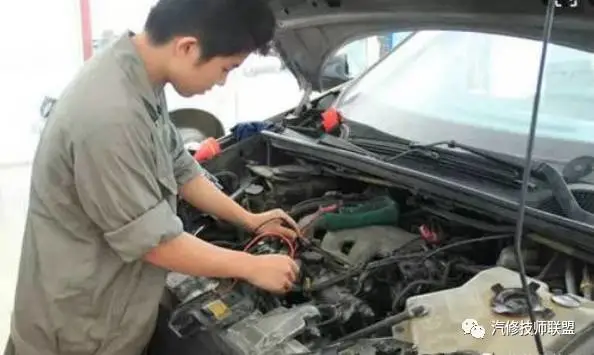Shaking the car during cold start is a common problem of gasoline-powered car. The most fundamental reason for the jitter phenomenon of cold start or neutral waiting car is the bad combustion in the cylinder. If the burning is not good, the power provided by the car is not enough, and the car shakes. For an example of image, assume that the horse can pull the car with a force of 100 points, but if it only uses a force of 60 points, of course, it will not move and shake.

Low ignition energy the first problem faced by the car during cold start is low temperature. The temperature in the engine is not enough, and the temperature of fuel oil and lubricating oil is not enough, therefore, during cold start, more fuel should be injected to meet the requirements of power performance. The larger the gap of spark plug, the smaller the ignition energy. When the fuel atomization is not good at low temperature, the fuel needs higher ignition energy. When the car is used for a long time, the ignition gap of the spark plug is easy to become larger, which leads to the decrease of ignition energy, thus affecting the power and causing the car to shake.
In addition, aging of ignition coil, aging of high voltage wire of spark plug or leakage can also lead to reduction of ignition energy.
1, the mixing ratio is not suitable
The allocation of oil-gas mixing ratio is not accurate and exists in both open-loop and closed-loop control. In the closed-loop controlled car, the minimum working temperature of oxygen sensor is 370 degrees Celsius. If the car is just started, the temperature in the exhaust pipe cannot reach 370 degrees Celsius, so oxygen sensor does not work. At this time, ECU makes a mistake in judgment, and its control of oil-gas mixing and ignition time through the actuator makes an error, thus reducing the power output of the car and causing jitter. Please add master WeChat: qxzydzb
2, carbon deposit in valve and inlet
If carbon deposit occurs in the valve and intake port of the engine, because carbon deposit can absorb a proper amount of fuel (just like water flows across the river bank and soil needs to absorb water),ECU judgment is wrong.
The computer actually controlled the injection of assumed 100 parts of oil and gas, but only 90 parts actually entered the cylinder (10 parts were absorbed by carbon deposition), so even if the remaining 90 parts of mixed oil and gas sufficient burning, the jitter phenomenon is inevitable if the required power is not reached.
3, different cylinder working conditions
Similarly, spark plugs of multi-cylinder engine also have the above problems. After long-term use, the ignition gap and time control of spark plugs will be different, but ECU cannot diagnose this deviation and still treat "them" equally, this leads to practical and theoretical errors. As a result, some cylinders generate less power, which will lead to jitter.
After the engine is used for a long time, the gap between each cylinder liner and the piston will also be different in size or small, that is, some gaps are large and some gaps are small. During cold start, there is no good oil lubrication, and cylinders with large clearance easily leak certain high temperature gas from the clearance, thus reducing power output.
4, water temperature sensor failure
If you have a fever, but the reading of thermometer is normal, what will happen? Water temperature sensor is one of the important bases for computer to judge the working condition of the engine at that time. If the temperature of the engine is minus 10 degrees Celsius when it starts cold, but the sensor "tells" the computer "The current temperature is 20 degrees Celsius", then the computer will inject oil according to the working condition of 20 degrees Celsius, and the oil volume is of course small, of course, jitter is natural.
5, other factors
Air flow meter is dirty, resulting in a decrease in the intake volume; The EGR (exhaust gas recirculation) valve is in poor working condition, and the exhaust gas is introduced at idle speed; Idle speed motor control the bypass inlet to adjust the intake volume, if the voltage is low, the work may not be in place; The oil product is too poor to reach the corresponding calorific value, resulting in a small output of combustion power. All the above four factors can cause bad combustion of a cylinder during cold start or neutral waiting, thus generating engine jitter.